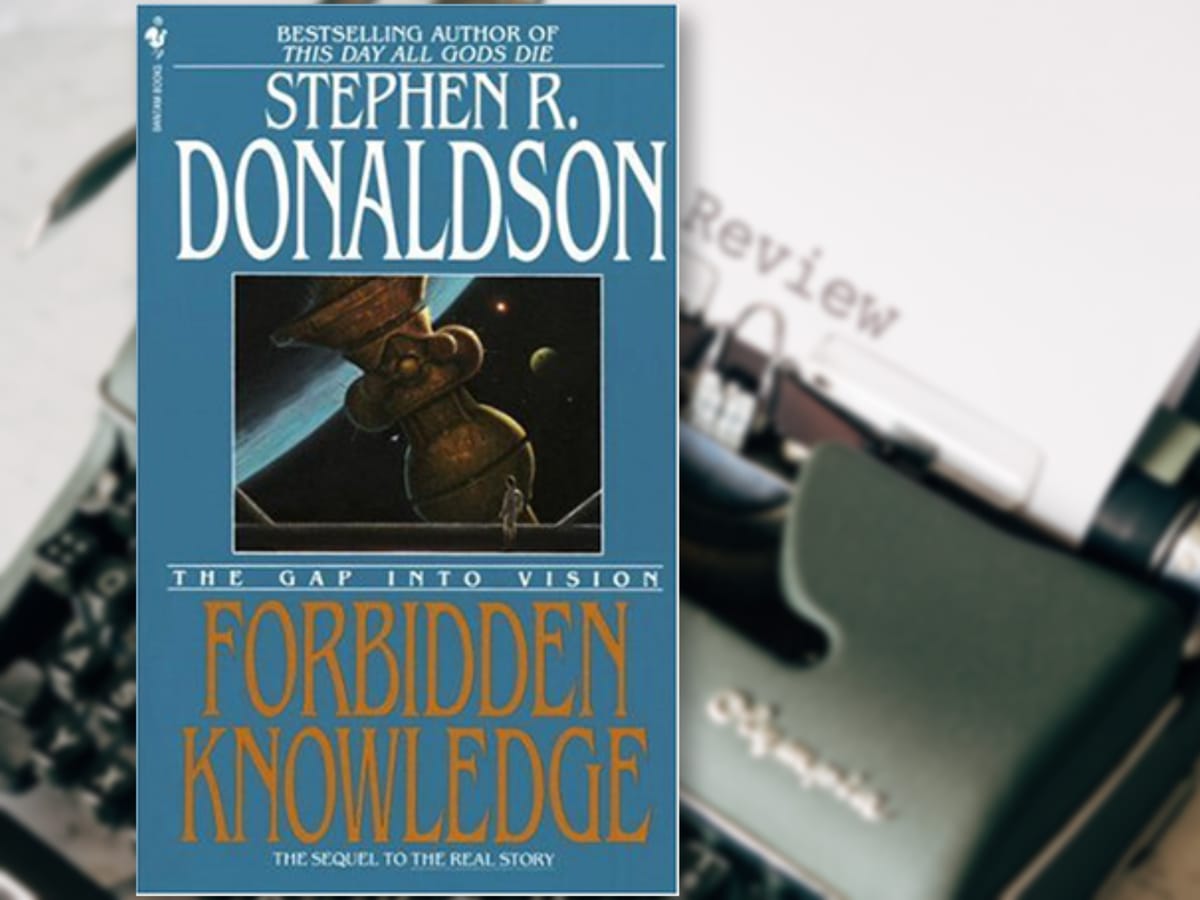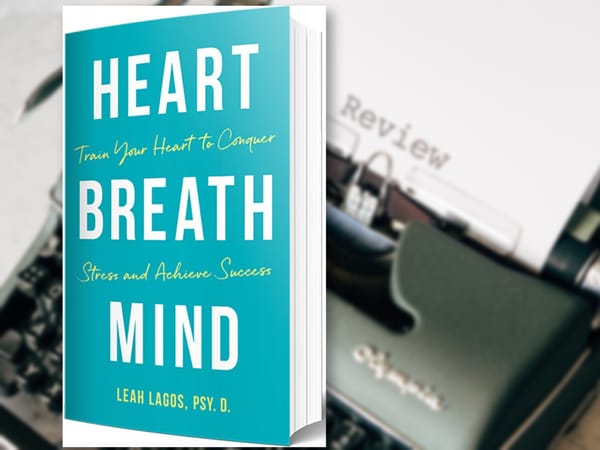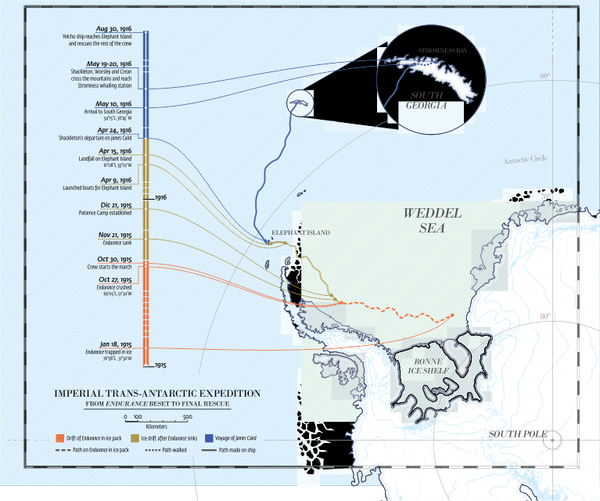Reviews, Rape, and Forbidden Knowledge: the Gap into Vision
Stephen R. Donaldson's Forbidden Knowledge: The Gap Into Vision is where metaphysical rape twists heroes into victims, cyborgs rise from despair, and humanity teeters on extinction's edge against alien horrors. Morn's addiction-fueled revenge spirals toward insanity. Epic sci-fi Wagnerian stakes! 🚀

Before the Internet, I did not read book reviews. Professional reviewers—those paid to churn out a weekly summary of the latest media—tend toward promotional hype when the product is from their corporate overlords to sanctimony when the product is from a competitor. For science fiction, professional reviewers are especially complicit. The dullest, drawn-out, un-stories get five-stars while the exciting, mind-bending stuff is never reviewed. The Internet has magnified the disease to a condition as accepted as pimples.
I used to choose books by their dust jacket summary and by scanning the first, middle, and last chapters. A “New York Times Bestseller” sticker never swayed me to read a book. Most of the “sold” copies required to get such a sticker are sitting at the bottom of bargain-bins, unread.
My reason for scanning the middle and last chapters of a book is to identify the writer’s style, and to determine whether an actual story lies between the covers. Given a six-foot shelf of books, most are aimless blather. Those are easy to identify when you can scan the middle and last chapters. If you can’t spot a plot progression from ten paragraphs in the middle and end of a book, it is not worth reading.
The way we purchase digital books makes avoiding reviews impossible. While the dust jacket summary and first chapter are still available for previewing, technology’s tyranny prevents me from reading the middle and last chapters. Real (yeah, right) people have replaced the professional reviewer. Their collective opinion of a book is impossible to ignore. The review stars are squatting under the title and next to the cover like trolls. Unable to scan the end of a book, I am forced to read these real (yeah, right) person summaries to discover if the book has a story worth my time.
As I am rereading Donaldson’s work, there is a trend in the real (only a real person would be foolish enough to review something written decades ago) people reviews: rape.
For some reviewers, the rape is too much. They hate Donaldson and his work. Follow their profiles, however, and you will find praise for A Game of Thrones, and the subsequent works in A Song of Ice and Fire. An epic that starts with incest (rape) and a young boy’s not-death when it is discovered. The minor stories in A Song of Ice and Fire are predicated on rape; rape through prostitution or slavery, rape through religion, and the old accepted standard of rape through arranged marriage. Similar praise is given to Dianna Gabaldon’s Outlander series, where the rape (but they call it rough-sex) of the male and female protagonist is a sadistic and masturbatory pleasure.
The Gap Cycle started with the physical and psychological rape of its female protagonist. In Forbidden Knowledge, the rape is transferred to its male protagonist. Metaphysical rape is everywhere in The Gap Cycle. The crew of the Captain’s Fancy are all victims of a form of rape, and, like the hostages of a Stockholm bank robbery, defend the man responsible for most of it. Even Nick Succorso was raped once, his manhood taken by a woman who left physical scars to complement the psychological harm.
I argue that in Martin and Gabaldon’s books, rape is titillation, then forgotten. The women and / or men pick themselves up, dust themselves off, and move on to the next plot device. They forget the trauma of their ordeal until it can be redemptive. Sales and television rights go a long way toward forgiving an author for their smut.
Donaldson’s depiction of Morn’s abuse and addiction is more personal, and therefore more troubling. Finding sympathy for a character who uses the instrument of her rape to rape another is difficult. The conditions Morn finds herself in are impossible to imagine. She is trapped on a spaceship that cannot cross the gap. She is alone, a bargaining chip for the life of Captain’s Fancy and the ship’s crew. Then she discovers she is pregnant.
Forbidden Knowledge: The Gap Into Vision fleshes out the wider Universe of The Gap Cycle. Through Angus Thermopyle’s interrogation and transformation into a cyborg, we meet the gods of Donaldson’s Wagnerian epic. Hashi Lebwol from Data Acquisition, Min Donner the director of Enforcement Division, and Warden Dios the Odin of United Mining Corporation’s Police.
We learn why Morn joined UMCP, and how the events since have opened her eyes to the universe she lives in. As an officer in UMCP, she thought the organization essential to humanity's survival. She learns the UMCP has been stripped of its credibility, therefore its capacity to save humanity. With the zone implant control in her possession, she becomes superhuman and a suicidal addict. She uses the zone implant’s ability to manipulate her body to manipulate Nick Succorso. The result is little more than the rape Angus subjected her to, but she is hardened now and prepared for the consequences. Of course, she is not. As Nick’s damaged spaceship rockets ever closer to forbidden space and the Amnion, Morn’s control becomes despair, and when Captain’s Fancy escapes the Amnion with Morn’s artificially grown son aboard, she descends into insanity.
Meanwhile, Angus Thermopyle is losing everything that made him Angus. Bright Beauty is destroyed, taking his last chance at freedom, the only thing he ever valued. But the rape of Angus is not complete with the destruction of his ship. At UMCP headquarters he is transformed into the cyborg Joshua, a tool, a demigod, for the gods of this Universe.
At the end of Forbidden Knowledge, Odin himself (Warden Dios) visits his creation and the first real hint at the larger story is revealed. Humanity is on the verge of extinction at the hands of the Amnion, but intrigue inside UMCP has hidden or destroyed the defense against the Amnion mutagens. Warden Dios does not like this, and he intends to do something about it through his new tool: Joshua—Angus Thermopyle—the only character in the story capable of altering the unalterable data cores.





